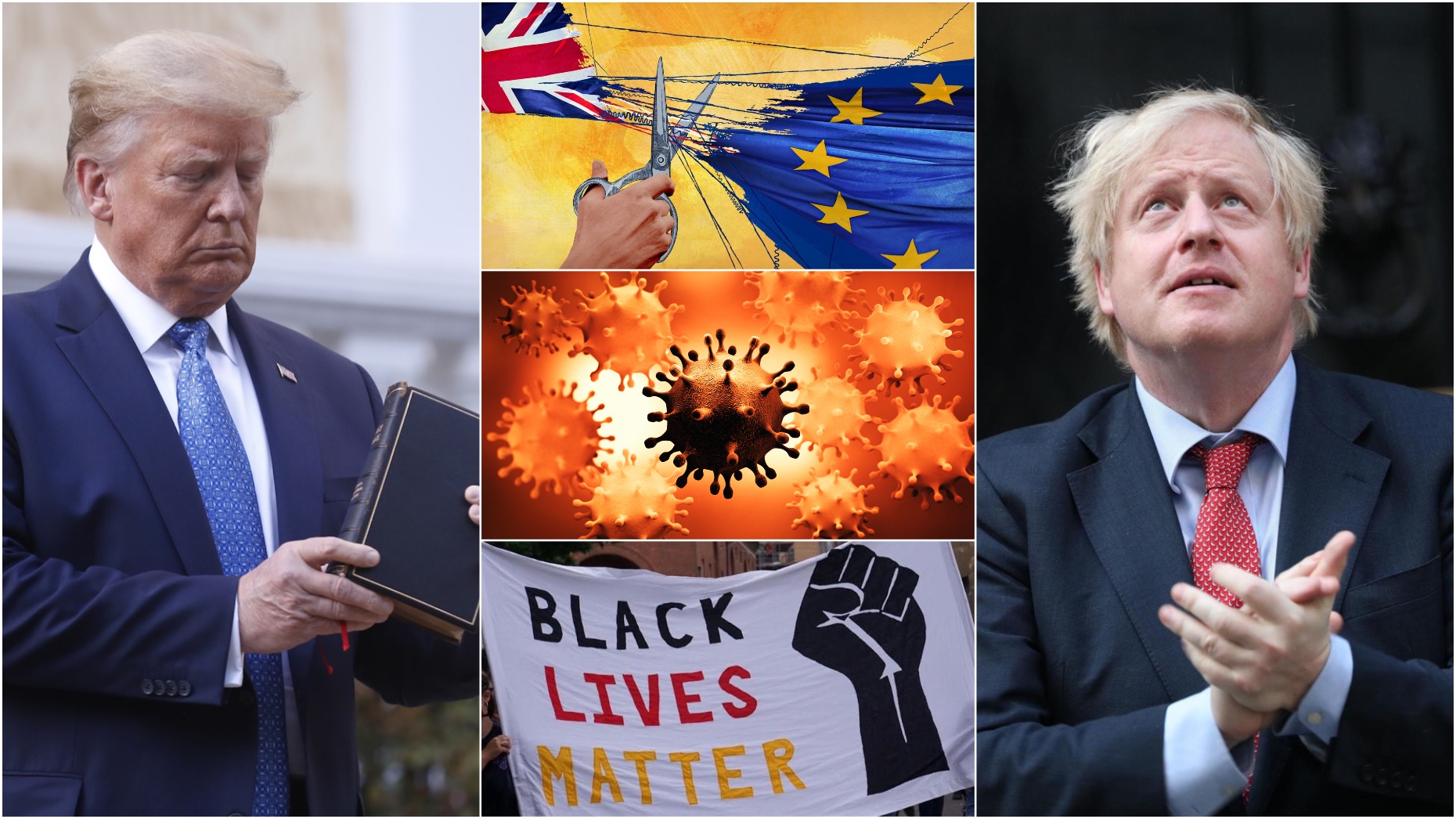It is beginning to dawn on the world that the failure to get the predictions right on Coronavirus has cost us globally hundreds of thousands of lives and trillions of dollars. We have seen that countries that planned better have suffered less in terms of lives — but the great leveller is the economy. Even those who have mercifully kept the death toll down will still be hit by an economic crisis deeper and probably longer than the financial crash of 2008.
In recent days there has been a small injection of optimism into our daily news bulletins that have caused us great anxiety in the last three months. The pandemic is beginning to wane, we are returning to normal. The Brexit debate, now long hidden behind the daily mortality roll, is now coming back into our newspapers and our news broadcasts. Even that is cheering us up after years of winding us up. Something other than Covid-19 for us to think about.
Sorry folks, it’s time to be vigilant again. Stay alert! There are other problems brewing.
Our newspapers and broadcast media are now reminding us again that the ‘cliff edge’ that obsessed them so much only a few months ago is now only six months away. The transition period, after which we are finally severed from the EU, is looming and we still don’t have a deal. Some argue that the UK government does not want a deal and its intransigence and desire to do things differently, come what may, has been displayed during the pandemic loud and clear. Our former European partners also have chosen to act as nation states during this period rather than a federation and we are seeing the consequences.
So, our press and media tell us the no-deal scenario is looking likely and once again each side predicts either the sunny uplands of economic and political freedom, a new influence in the world or isolation, crippling tariffs and slow descent into a marginalised irrelevance. The WTO will sort it out say one side, “who needs a deal anyway”. The other side tell us that even ‘out’ we must remain closely attached to the continental mainland or suffer eternal austerity. It is remarkable how blinkered both sides of the argument are.
Now we need to ask what is the next crisis, a second wave of Covid-19, possibly, Brexit cliff edge getting likely, constitutional crisis in the United States, almost certain. It might be all three, and they’re interlinked.
Just over two months before we finally leave the EU the American people vote to choose their next president. Four years after Trump came to power in a year that shook us all up, it’s time to vote again. Dire predictions are now starting to emerge about the potential outcomes of that election and people are starting to ask in the US “what if Trump won’t go”. He is already sending the signals that he might not, in fact he was doing that before the last Presidential election when he infamously announced he would accept the result only if he won.
Now he is gearing up for the election and already he is telling us in his tweets that an election fraud against him is underway. In a total distortion of the truth, he suggests that voting by mail is some sinister Democrat conspiracy to unseat him. It is a racing certainty that unless he wins the 2020 election that that will be his argument screamed at high volume on Twitter and elsewhere. Donald does not lose, if he is not returned it will not be because the American people don’t want him, it will be because he was cheated. So we perhaps need to look to the possible consequences of that.
Lawrence Douglas in his book Will He Go? Trump and the Looming Election Meltdown in 2020 sets out an alarming scenario of Trump refusing to go after an election defeat. The book demonstrates a huge gap in the famous system of checks and balances on power in the US. No one really knows what would happen if an incumbent president, who had just lost an election, would not stand down. Douglas is of course concerned with the consequences for the American people and political system, but just like the world should have woken up earlier to what was happening in China, it is essential we look to the global fallout of such a disaster apparently situated in a foreign land somewhere.
So, what will we in the UK and Europe do if this disaster unfolds just as we approach the December 31 deadline? What kind of trade deal with the US would we get from a US in what Douglas calls a meltdown? We know that any trade deal with the Trump administration would in any case have been as flaky as his suntan, but what if we don’t even know who the president is? What if he is still there on January 20 with Joe Biden in some ‘counter-White House’ down the road? Who will Boris Johnson be dealing with in such a situation? Trump, Biden even Nancy Pelosi perhaps?
Who will the EU recognise as Commander in Chief, who will NATO? The reader will note that that was a long list of questions. The big problem is no one seems either to have a clue what the answers might be, or even have contemplated the questions themselves. The UK government seem to have a habit of driving towards ‘cliff edges’ with a spectacularly Micawberesque confidence that everything will work out all right.
That has cost thousands of lives and tens of thousands of jobs in the last three months and the failure to understand potential consequences still seems to either elude them, or they simply do not care. We must be optimistic that the pandemic will end and the crisis will soon be over. Let’s hope that before the next crisis arises that all the ‘experts’ and ‘advisors’ we are assured keep us safe will get their message across to those elected to govern us. Hope springs eternal, they may one day even keep us informed of that.







